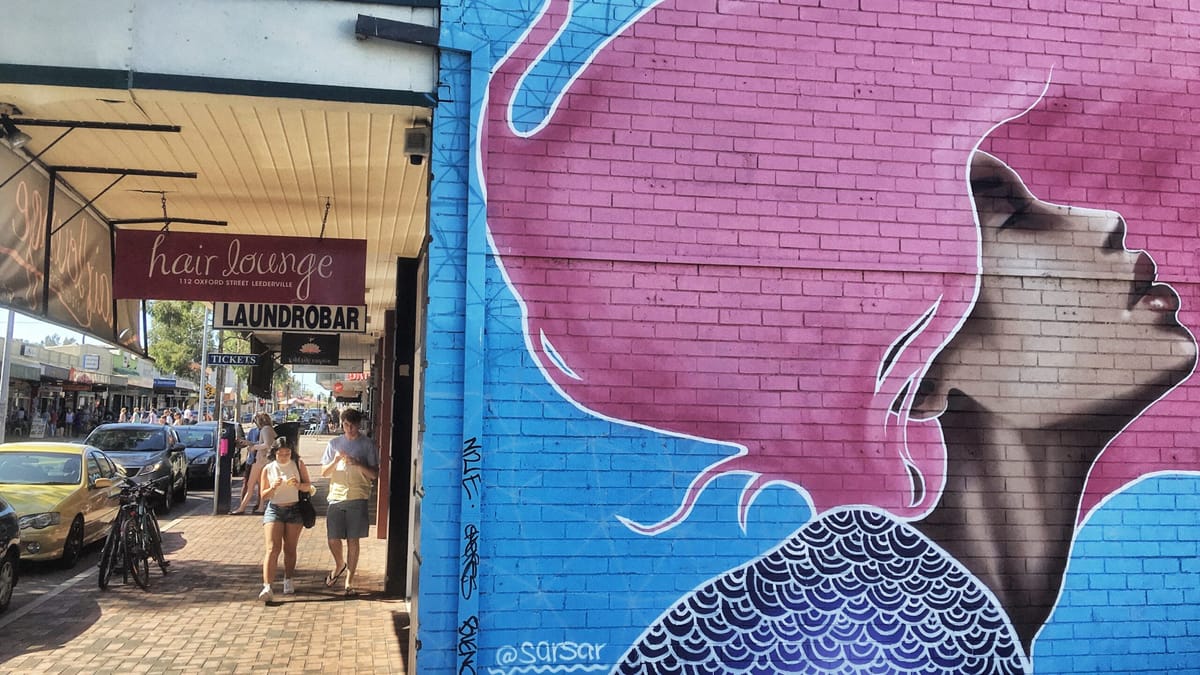How micro-businesses are changing the way we live and work

Our working lives are changing. We might still be dominated by international corporates, but individually and in small groups we changing the way we live.
Small businesses shape my daily life in more ways than I’ve previously realised. My morning coffee and lunch are purchased from local cafes. I sub-let my office from a small communications company. I take a taxi driven by an owner-driver to collect my car from a family-run garage. I get vaccinations at the local family practice and later call a self-employed plumber about a mystery leak in my bathroom. When I go out at night it’s invariably to a small restaurant or to the pub or to catch a movie at the independent cinema in my neighbourhood. All of these are small businesses. Yet, despite their small size, they all have a major impact on the quality of my life.
Of course, I also buy food from a nationwide food chain and the movies I watch at the independent cinema come from Hollywood or some other mega-production house, which I also stream into my home via Netflix. I use a credit card from a national bank for most purchases and buy global brands from big retailers. I’m not anti-big business, but I have come to appreciate the value small and very small businesses have in my life.
I grew up in a middle-class Australian household. Dad was a teacher; mum was a nurse. While my career was never mapped out for me, it was generally understood I’d be a professional of some sort. If I didn’t work for government, then big business would be a good option, especially in a state dominated by mining. Small business was not on my radar. Partly because I had a very narrow understanding of what a small business was. Like most Australian’s at the time, I imagined a typical small business to be the corner store.
As it turned out, small business became the perfect vehicle for my personal and professional aspirations. After studying I joined a non-government organisation for a couple of years, worked for government a few more years, then started my own small consulting business with a friend some 25 years ago. I often joke that’s been a long time since I’ve had a “real job”.
Independent consulting has been a joy for me. I’ve kept small and flexible, deciding some years ago not to grow the firm. Independence and a focus on building my technical expertise have been more important to me than being a manager of others. Each year, I’ve earned a little more than the year before and have generally felt satisfied when I compared my earnings with other career options.
My experience is not unique. More and more people are choosing to own and manage their own business and there are different reasons driving these decisions. In the United States almost all private sector employees work in a small business––admittedly, with a threshold of 500 workers, the concept of a small business is quite large in the US. However, what is more telling is that 52 per cent of these businesses are home-based and 78 per cent employ only their owners. This reflects a general pattern in many countries. Self-employment, where only the owner is employed by the business, represents a high number of workers. This is followed by micro-businesses employing up to five people.
In Australia, there are a little over two million businesses and 96 per cent of these are small business employing up to 19 workers. Sixty-one per cent of these businesses do not employ anyone at all, other than their owner, and 24 per cent employ fewer than five workers.
In the United Kingdom, the pattern is the same. Small business ownership and self-employment are at an all-time high. What’s more, there are more women and more professionals joining the self-employed and micro/small business sector.
Many economists view these statistics with scepticism: these are signs the economy is not growing enough––self-employment and micro-businesses flourish when the economy is not doing well; self-employed people and small business employees are usually paid less and, if given the chance, would opt-out of these jobs and into a better paid, more secure job with a large employer. This may be true some of the time, but there is increasing evidence it is not true all of the time.
The picture of self-employment and micro and small business is mixed. There can be great danger in painting everyone with the same brush.
A recent government survey of self-employed workers in the UK, published in 2016, found that most self-employed workers enjoyed this experience and, compared with being an employee, valued flexibility, independence and job satisfaction. A whopping 84 per cent thought their life overall was better in self-employment and less than a third felt their earnings from self-employment did not allow more than a basic standard of living. Another study found that small business wages increase over time.
None of this is to present a self-employment utopia. Small business owners and workers face many challenges, but these are not all the same. It is important to better understand the diversity of the small business experience and to introduce reforms that respond to these experiences.
There are many small business stereotypes that skew our understanding of what it’s like to be in business and who small business people are. Small business people have been typically cast as white males who drive a leased European car and vote conservatively; alternatively, they’re the migrant who runs the all-hours local store, their children studying in the corner and working the till. The truth looks very different. The self-employed, micro/small business population is as diverse and dynamic as the communities we live in.
A 2015 study by the Royal Society for the Encouragement of Arts, Manufactures and Commerce in the UK describes six “tribes” of self-employment, presenting a range of motivations and experiences. These tribes include the “visionaries” who are driven by a mission and sense of purpose––typically young men, who earn more and are most likely to grow. Compare this with the “independents” who go into business to explore their creative talents and the “locals” who operate low-tech businesses with a modest income.
My self-employed cleaners who like to be paid in cash are entirely different from the plumber who travels with his credit card reader and van full of taps, pipes and washers. So too is my communications company landlord who manages a wide variety of government and corporate contracts, coordinating fulltime and casual artists, designers and logistic specialists. My co-tenants are an all-male team of computer hackers working all hours of the day and night on new apps, with pizza boxes, computer screens and bicycles spread across the room.
This then is the new world of work. Our lives might be dominated by international corporates, but there are individuals and small groups of people who provide many of the services and goods I value. Being self-employed makes social and financial sense for many, and a micro or small business can be the perfect vehicle for living and working more creatively.


